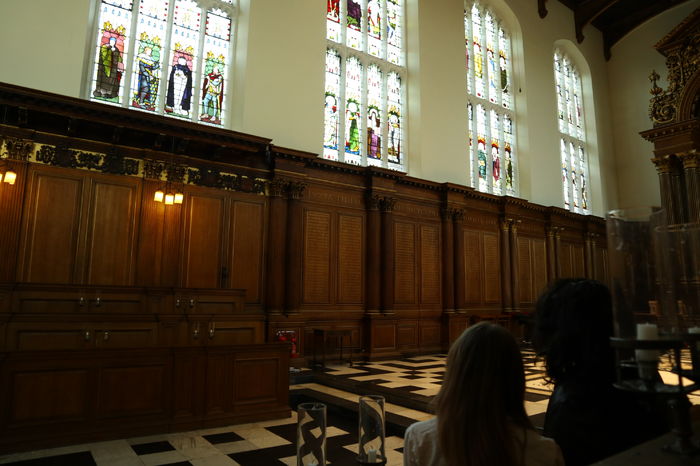Multiculturalism is under fire
We must resist the ever growing culture wars to safeguard multiculturalism, argues Luca Chandler

If there’s one casualty of the culture wars we should all be worried about, it’s multiculturalism. Once seen as the promise of a fairer, more inclusive society, it’s now under siege. Dismissed as naïve idealism or a failed social experiment, we’re told it has run its course. But, if we care about building a society that actually reflects its diversity, we can’t afford to abandon it. Saving multiculturalism doesn’t mean clinging to comforting slogans, it means reckoning with its tensions and reclaiming its democratic purpose.
At its core, multiculturalism is a balancing act, making space for cultural diversity while integrating minorities into a shared public life. Critics argue these two aims pull in opposite directions. Is it not counterintuitive to insist on commonality while maintaining cultural difference? I think it’s in navigating this tension that multiculturalism finds its strength.
As political philosopher Will Kymlicka argues, multiculturalism isn’t a retreat from liberal democracy but its expansion. Minority rights aren’t just about symbolic inclusion but enable people to participate as equals. That does, however, come with an expectation of civic engagement. This isn’t assimilation in disguise, instead being a democratic bargain. Without it, we risk two extremes: a society of isolated cultural silos or an exclusionary nationalism that demands assimilation at the cost of identity.
“Many students from minority backgrounds describe feeling like they have to adapt to an unspoken standard of belonging”
This tension plays out in real time at Cambridge. The university prides itself on diversity with college prospectuses boasting about widening participation. Walk through Sidgwick Site and you’ll hear countless languages, or see cultural societies advertising their events. Yet, many students from minority backgrounds describe feeling like they have to adapt to an unspoken standard of belonging. These underlying rules require a performance, a version of themselves that fits within a pre-existing framework.
This makes one thing clear: diversity on its own doesn’t equal inclusion. Multiculturalism isn’t just about representation, it’s about recognition. It’s about ensuring people don’t just exist in a space but actually belong in it, being able to express their identities without it being conditional on how palatable they are to the mainstream.
Multiculturalism prides itself on inclusion, but inclusion is rarely unconditional. Minority cultures are accepted, but often only within the ideological framework of Western civic ideals. This might seem neutral, but it isn’t. No version of multiculturalism is completely pluralistic because every society, whether it admits it or not, draws boundaries around what it considers acceptable difference.
The real question isn’t whether assimilation happens (it does). It’s who sets the terms. Too often, “integration” means minorities are expected to do the adapting, while the mainstream remains unchanged. If multiculturalism is going to mean anything beyond a branding tool, it has to be a negotiation, not a one-sided process.
“Every call for inclusion is seen as a loss for someone else”
This isn’t about demanding special treatment or flattening differences. It’s about recognising that if multiculturalism only functions on the majority’s terms, it ends up reinforcing the same power structures it claims to challenge. If it’s to work in any meaningful way, it has to go beyond surface-level diversity and engage with deeper questions, about who gets heard, whose identity is valued, and who actually gets to belong.
Saving multiculturalism, then, means renewing the democratic bargain at its core. That means rejecting the culture war logic that pits identity against identity, where every call for inclusion is seen as a loss for someone else. Instead, we need a politics of pluralism that acknowledges deep differences while still fostering a shared sense of belonging.
It’s difficult work, but it’s necessary. And if Cambridge, an institution that prides itself on its intellectual and cultural capital, still struggles to make multiculturalism more than a branding exercise, what does that say about the wider challenge we face?
Multiculturalism may be under fire, but it remains our best chance at building just and inclusive societies. We won’t save it by pretending it has no contradictions. We’ll save it by embracing them, and doing the hard, necessary work of living together in difference.
Want to share your thoughts on this article? Send us a letter to letters@varsity.co.uk or by using this form.
 Comment / Cambridge students are too opinionated 21 April 2025
Comment / Cambridge students are too opinionated 21 April 2025 News / Candidates clash over Chancellorship25 April 2025
News / Candidates clash over Chancellorship25 April 2025 News / Cambridge professor paid over $1 million for FBI intel since 199125 April 2025
News / Cambridge professor paid over $1 million for FBI intel since 199125 April 2025 News / Zero students expelled for sexual misconduct in 2024 25 April 2025
News / Zero students expelled for sexual misconduct in 2024 25 April 2025 Comment / Does the AI revolution render coursework obsolete?23 April 2025
Comment / Does the AI revolution render coursework obsolete?23 April 2025






